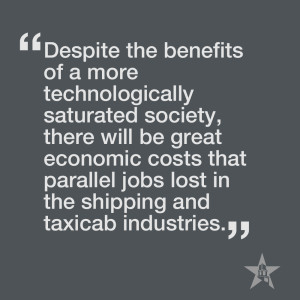We live in an incredible period of history which might one day be viewed the same way the Renaissance is viewed today. The past twenty years have seen an astounding leap forward technologically and socially. This pace of innovation can be exhausting and has contributed to the increase in nostalgia for times this generation never lived though.
 The nature of nostalgia is often blind to the less desirable aspects of a time or place. The filmic 1950s is certainly aesthetically pleasing, but nobody would desire its visual sleekness if they had to endure the sexism and racism that came with it. Luckily, we no longer have to. The Internet has made the act of picking and choosing features from past generations as easy as managing a Pinterest board.
The nature of nostalgia is often blind to the less desirable aspects of a time or place. The filmic 1950s is certainly aesthetically pleasing, but nobody would desire its visual sleekness if they had to endure the sexism and racism that came with it. Luckily, we no longer have to. The Internet has made the act of picking and choosing features from past generations as easy as managing a Pinterest board.
The namesake of the Renaissance is the French word “rebirth.” Most scholars agree that the cause of the Renaissance depended upon a dissemination of new technology, intercultural communication, education, and what could be called nostalgia. The printing press democratized publication creating a literacy rate never before seen. One day, we will look back and gawk at the breakneck pace of innovation in this age, especially in regards to the changes caused by smartphones, artificial intelligence, and self-driving vehicles. Each of these have the potential to greatly disrupt economic and social norms that are taken for granted.
We are already in the midst of the changes caused by the pocketable computers we call phones. These devices challenge our sense of community. They have created new social mores and accelerated the pace of work in an already progress-obsessed Western world. The role artificial intelligence will play in our lives in the future is yet unknown. When its time comes, we may be faced with questions of our very morality. What is most pressing, currently, is the economic shifts that will take place due to vehicles that can control themselves.
At first, self-driving vehicles will be primarily used by shipping companies. When shipping by truck, drivers often face long hours on the road which can be aided by driving assistants. When human drivers are no longer needed, there will be a huge economic hit and a tragedy of unemployment if we do not provide alternative job options for these men and women. Private use of these vehicles will flourish because of their adoption by the young and the elderly. Today’s young people do not tend to see driving as a totem of freedom in the way previous generations have. The smartphone seems to have supplanted the car.
It is unlikely that young people will buy these cars outright at first. Like all new technologies, they will be quite expensive when they first hit the market. I think young people will start out by renting these vehicles, severely disrupting the taxicab market. However, if driving is not important to them, it will not make sense for them to pay for a vehicle that spends over 80% of its life on a small plot of asphalt. There will be Time magazine articles about the crazy millennials who don’t drive their own cars! (What an honor it is to be part of the very first generation not understood by the older generation).
 The part of the older generation that I think will understand the shift to self-driving vehicles is the elderly. The prospect of losing one’s freedom with age is understandably frightening. Self-driving cars allow older people to retain their freedom even in a fragile state. They can connect with family and friends without being limited by their age.
The part of the older generation that I think will understand the shift to self-driving vehicles is the elderly. The prospect of losing one’s freedom with age is understandably frightening. Self-driving cars allow older people to retain their freedom even in a fragile state. They can connect with family and friends without being limited by their age.
Despite the benefits of a more technologically saturated society, there will be great economic costs that parallel jobs lost in the shipping and taxicab industries. The disruption caused by technology might lead to a horrific crisis of unemployment in our lifetimes. This veritable Pandora’s Box cannot be resealed. As there is no road back, we must do what we can to ensure that our society can adapt to changing times.
This means that we must ask questions of ourselves about the economy and society we want to live in. If we do not anticipate the challenges that will come about because of autonomous vehicles, we will not be prepared to embrace their arrival without great pain. There are questions we should have asked before the smartphone became such a staple of our society. Now, these questions of social correctness are being answered in situ, without the wisdom that comes with forethought. If we are not careful, the more difficult quandaries posed by autonomous vehicles will catch us unaware as well.
We tend to forget that the Renaissance must have been incredibly stressful for certain people in society. The state of knowledge, status quo, and the perceived purpose of life was being forever altered. Our lives happen to take place in quite a similar time. This period has come about because of intelligence which drove forward innovation, but its pace must be mediated by wisdom. Will we live the life posed by 1950’s futurists and John Maynard Keynes in which we devote our days to leisure while the robots do our mundane work? Will we move to a socialistic universal wage doled out by the government after all the jobs are gone? Will we try to forgo our electronic toys in lieu of a simpler lifestyle? It is hard to say, but we will need to answer these questions in our lifetime. Otherwise, they will be answered for us.
